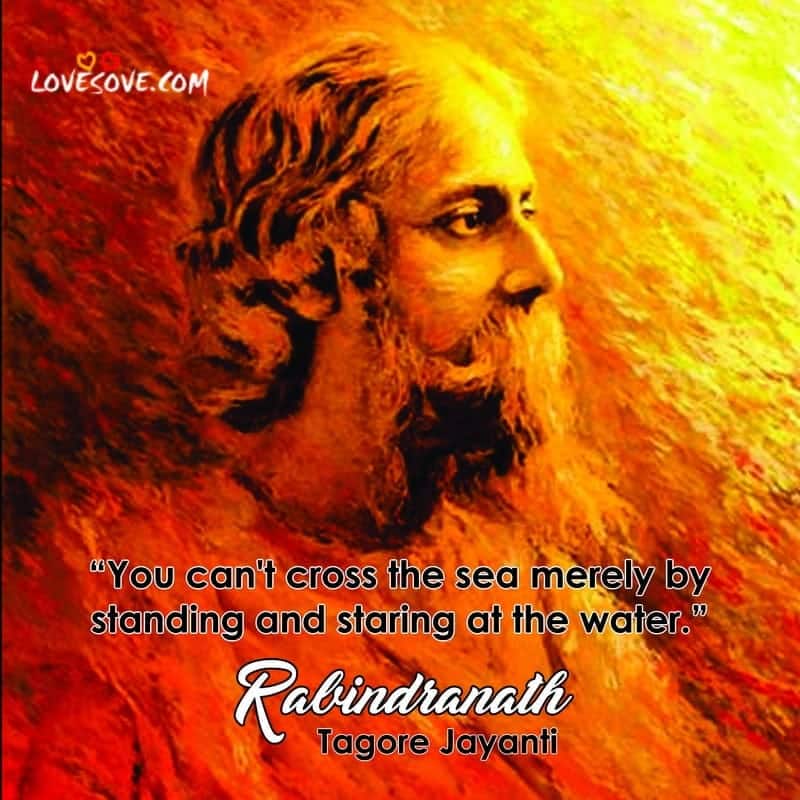

However, as the Non-Cooperation Movement gained momentum, Kazi’s poetry began to evolve, and he started to show a heightened interest in journalism. After this, Nazrul contributed most of his works to Moslem Bharat, a popular monthly magazine.

His first prose, Baunduler Atmakahani (Life of a Vagabond), preceded this remarkable poem. By 1919, he published his first poem, Mukti (release), in the Bangiya Mussalman Sahitya Patrika-an expression of his fluid religious beliefs and spiritual bent of mind. Nazrul could have had a comfortable job in the government due to his ex-serviceman status, but he chose to pursue his dreams in poetry instead. During this time, he was influenced by the Bolshevik Revolution and “began to unravel and understand his role in the imperial army and how a writer was shaped by his times”, says Debjani Sengupta in her article for The Wire. Eventually, he decided to leave education to undergo military training in Karachi at the Bengal Double Company-a unit formed during WW1, especially for Bengali youth looking to foray into the services. This initial exposure to Ghatak shaped Nazrul’s revolutionary outlook. Interestingly, Ghatak’s aunt, Dukuribala Debi, was the first woman in Bengal to suffer imprisonment under the Indian Arms Act 1878 due to her radical opposition to colonial rule. While known poet Kumud Ranjan Malik was one of Nazrul’s teachers, the influence of Nibaran Chandra Ghatak, a teacher connected with the revolutionary Jugantar Party, had a profound impact on his life. It was Nazrul’s teachers who helped carve the poetic gem within him. When a gentleman from East Pakistan (now Bangladesh) recognised his artistic abilities, Nazrul finally had the chance to pursue his educational aspirations. He started as a muezzin at a local mosque and moved on to do odd jobs to sustain his family. His family was originally touted to be from Patna, but Nazrul was born on, in Churulia, near Bengal’s Asansol district and that is where he spent a good portion of his boyhood. He was also part of his uncle Bazle Karim’s travelling theatre group, which exposed him to Puranic scriptures and Hindu literary texts in Sanskrit and Bengali.

His father passed away when he was young, and his early days were spent in poverty.
#Best rabindra sangeet whatsapp status full
While the prefix Kazi (judge) suggests a life of comfort, Nazrul led a childhood full of hiccups and hardships. The Telegraph’s Prasun Chaudhuri says in his article, “Nazrul was an activist who wielded his pen against colonialism, religious fundamentalism, elitism and fascism”.Īlso read: Bengali poet Jibanananda Das took over Tagore’s legacy by not trying ‘too hard’īorn at a time when seminal works like Bankim Chandra Chattopadhyay’s Anandamath and Vande Mataram were laying the cornerstone for a cultural renaissance in Bengal, Nazrul came into the world exactly when it needed him.

In Dhumketu, he wrote on the importance of unison between Hindus and Muslims, quipping that “mosques and temples should never be used to create barriers.”įrom composing Nazrul Geeti, which is as relevant to Bengali music as Rabindranath Tagore’s Rabindra sangeet, to becoming the voice of Bengali Muslim laureates in the face of Urdu domination by erstwhile West Pakistan, there is a lot that bidrohi kobi (rebel poet) Kazi Nazrul Islam did - not just for Bengal’s booming literary scene, but also for the Indian freedom struggle, women’s emancipation and religious harmony. He composed bhajans and kirtans and introduced the concept of ghazals to the modern Bengali imagination-setting a clear example of art transcending religious boundaries. Nazrul’s writings were a beautiful amalgamation of Hindu and Islamic traditions. Well-versed in both Hindu and Islamic texts, Nazrul showed a visible disdain for orthodox practices of organised religion and believed in keeping his relationship with God personal. However, as the writer refused to side with either party, he ruffled feathers on both Hindu and Muslim sides. With his magazine Dhumketu (The Comet) and his legendary poem Bidrohi (Rebel) , Nazrul challenged an autocratic regime and the communal hatred that came in its wake. He was a remarkable literary genius and a true rebel, who on his quest for self-expression and freedom of thought, preached unforgettable lessons on pluralism, secularism and the importance of an egalitarian society. At a time when the world is breaking into fragments, and India’s secular sentiment is being questioned, it is crucial to hark back to the life of Bengali poet, journalist, composer and activist Kazi Nazrul Islam.


 0 kommentar(er)
0 kommentar(er)
